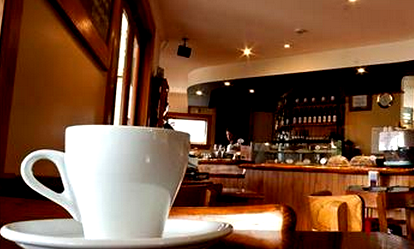Characteristics of coffee beans treated with Nicaraguan honey

For professional baristas, please follow the coffee workshop (Wechat official account cafe_style)
Flavor description: chocolate, red fruit, juicy, balanced medium mellow thickness
Factory name: Qianjie Cafe address: No. 10 Baoqian Street, Yuexiu District, Guangzhou City, manufacturer contact: 020-38364473 ingredients Table: own baking shelf life: 30 net content: 227g Packaging: bulk taste: neutral coffee beans ripe degree: coffee cooked beans contain sugar: sugar-free origin: Nicaraguan coffee types: other
Bourbon coffee was originally grown on the island of Reunion, which was also known as bourbon le Bourbon before 1789. Generally speaking, bourbon is a coffee tree that belongs to a branch of Arabica species, generally bearing red fruit, called red bourbon, in addition to yellow bourbon, orange bourbon, yellow bourbon relatively low yield, but better quality.
Nicaragua Honey Process Red Bourbon
Country: Nicaragua
Production area: La Sabana, Madriz
Altitude: 1400-1450m
Harvest period: December to March of the following year
Treatment method: honey treatment
Miel, in Spanish, means honey. Honey treatment (Miel Process) refers to the process of making raw beans from coffee fruit, which finally makes the coffee unforgettable like sweet honey. Honey treatment, formerly known as "Pulp Natural", means sun drying with mucous membrane. After the outer skin of the coffee fruit is removed, there will be a layer of sticky jelly on the raw bean, which is different from washing it off with clean water, so it is not easy to dry in the sun. Therefore, it is necessary to strictly control and turn the whole process to avoid bad fermentation smell.
Hand-washed Nicaraguan honey treatment. 15g powder, medium grinding (small Fuji ghost tooth cutter 4 grinding), v60 filter cup, 88-89 degrees water temperature, 30g water injection for the first time, steaming for 27 seconds, water injection to 105g water cut off, wait for the amount of water in the powder bed to reach half and then water injection, slow water injection until 225g water, no water powder ratio at the end, 1:15, extraction time 2:00
Jim Molina honey treatment
Country: Nicaragua
Production area: La Sabana,Madriz
Manor: Jaime Molina Jim Molina
Landowner: Montecristo
Processing plant: Jaime Jose Molina Fiallos
Altitude: 1400-1450m
Harvest time: December-March of the following year
Treatment method: honey treatment
Variety: red bourbon
Variety: red bourbon
Processing plant: Jaime Jose Molina Fiallos
Flavor: chocolate, red fruit, juice feeling
Nicaragua is mainly divided into four major producing areas, namely, Bosnia and Herzegovina Sub-region (Segovias), Madaguelba / Henodeka region (Matagalpa/Jinotega), Borgo region (Boaco) and Pacific Coast region (Pacific). The highest planting height in Bosnia and Herzegovina is about 1500-2000, and the coffee produced is the highest SHG (Strictly High Grown).
Planted with volcanic ash and shaded trees, it produces high-quality Nicaraguan coffee with a mediocre, soft and slightly sour flavor. Nicaraguan coffee is the largest of all coffee beans, while MADRIZ (Madriz) is located in the mountains of northern Nicaragua, adjacent to Nueva Segovia, Jinotega and Esteli, the area is quiet and elegant, with the famous Somoto Canyon, and the local residents are mainly indigenous peoples of various tribes and people who mixed with the Spaniards in the colonial period (mostly Chorotegas). The local production of coffee, the development of arts and crafts processing trade, as well as traditional delicacies. Madriz is characterized by a cool climate, its small town looks simple, but features beautiful roofs and special tile white buildings, there are also many coffee plantations, and the mountains are covered with verdant pine and oak forests.
Although the area has not yet been widely explored by tourists, Madriz has a variety of interesting attractions, including special geological structures, rock paintings, ancient colonial sites, and high-quality handicrafts developed from different materials. Madriz's capital is in the small city of Somoto. Somoto has an active ancient parish church located in the center of the city (the church still has antiquities and architectural structures preserved from the colonial era since 1661).
Important Notice :
前街咖啡 FrontStreet Coffee has moved to new addredd:
FrontStreet Coffee Address: 315,Donghua East Road,GuangZhou
Tel:020 38364473
- Prev

Taste and flavor of coffee treated with Nicaraguan honey
Professional barista communication please follow the coffee workshop (Wechat official account cafe_style) Nicaragua Honey Process Red Bourbon country: Nicaragua production area: La Sabana, Madriz altitude: 1400-1450m harvest time: December to March of the following year treatment: honey treatment Miel, in Spanish, means honey. And honey treatment (Miel Pr)
- Next

How much is Nicaraguan honey treated coffee? Nicaraguan honey treated coffee price
For the exchange of professional baristas, please follow the coffee workshop (Wechat official account cafe_style) Nicaragua is mainly divided into four major producing areas, namely, Bosnia and Herzegovina (Segovias), Madaguelba / Sinodega (Matagalpa/Jinotega), Borgo (Boaco) and Pacific Coast area (Pacific). The highest planting height in Bosnia and Herzegovina is about 1500 2000.
Related
- Does Rose Summer choose Blue, Green or Red? Detailed explanation of Rose Summer Coffee plots and Classification in Panamanian Jade Manor
- What is the difference between the origin, producing area, processing plant, cooperative and manor of coffee beans?
- How fine does the espresso powder fit? how to grind the espresso?
- Sca coffee roasting degree color card coffee roasting degree 8 roasting color values what do you mean?
- The practice of lattes: how to make lattes at home
- Introduction to Indonesian Fine Coffee beans-- Java Coffee producing area of Indonesian Arabica Coffee
- How much will the flavor of light and medium roasted rose summer be expressed? What baking level is rose summer suitable for?
- Introduction to the characteristics of washing, sun-drying or wet-planing coffee commonly used in Mantenin, Indonesia
- Price characteristics of Arabica Coffee Bean Starbucks introduction to Manning Coffee Bean Taste producing area Variety Manor
- What is the authentic Yega flavor? What are the flavor characteristics of the really excellent Yejasuffi coffee beans?

